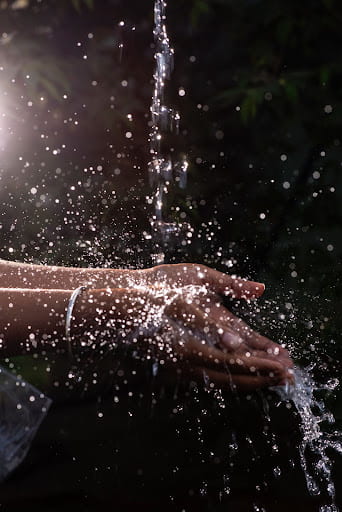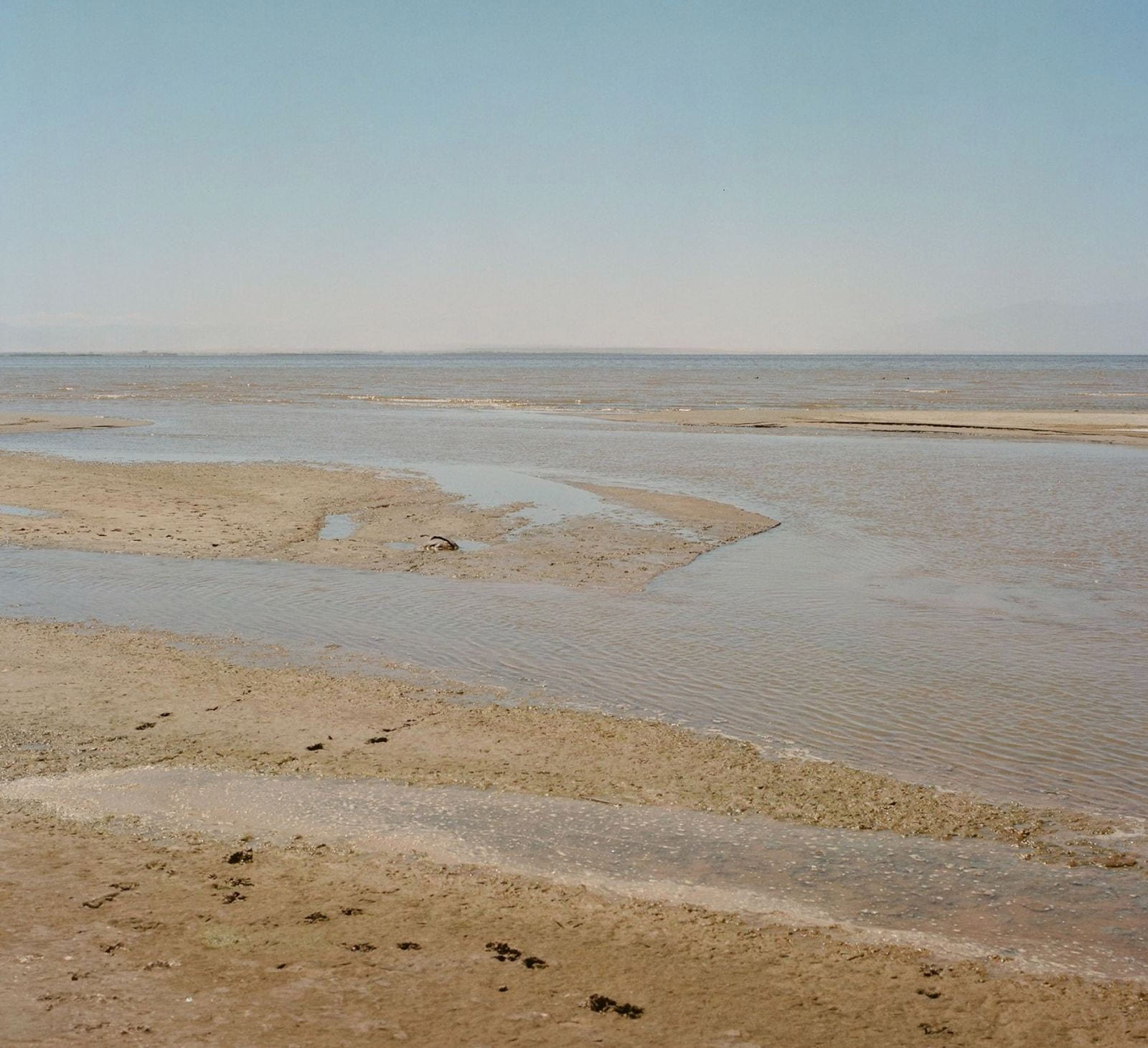How we view water, how it matters, and why it’s messy

In this article, we explore the importance of how we perceive our freshwater. This question is important as it has implications for water management, sustainability, and environmental policy.
The question seems simple enough: Do you think access to water should be a human right? But the reality is that justifying a concept with deep-rooted ethical entanglements can be difficult to defend. I can argue from an environmental scientist’s point of view that water has unique properties that make it subject to special treatment (for example, it is a universal solvent, has high surface tension, high heat capacity, etc).
As I fumbled with the moral considerations that come with this question, I found myself grappling with how terrifying it would be to imagine a world where water isn’t given special consideration and is treated as a commodity (even more so than now). Some dangers rest with giving water instrumental value rather than intrinsic value. I pictured Rango.
I could argue that since virtually all life on Earth needs water to live, it should be a human right, right? It’s messier than that. The United Nations didn’t acknowledge water is a human right until 2010. The fuss is some still don’t agree; this framework is still not fully built into environmental policy. Access to water is still not equitable. But we’ll get to all of that.
The way water is valued is a key part of how it is distributed, managed, and preserved. Former Nestlé CEO Peter Brabeck-Letmathe argues water is not a human right. Coffee Mate, Kit Kats, Fancy Feast Cat Food, and even water itself are all sold by Nestlé (see image below for brands you might know that are tied with Nestlé). Brabeck-Letmathe and many others argue water is a commodity, like any other food source, and that it would be radical to make water a human right. Brabeck-Letmathe argues not everyone has the right to access water, and many people in positions of power seem to agree with this framework.

Under this viewpoint, water is a commodity not valued through any cultural, ethical, or moral significance. Why give water any more significance than other commodities? Why is it even immoral to profit from water? Better yet, let’s frame it this way: what happens when we see water as a commodity?
About 71 percent of the Earth is covered in water (Water Science School, 2019). About 97 percent of this water is saline- of no use to humans for drinking and most other things. See Figure 1. Most times when we discuss water, we refer to it in terms of its instrumental value. In other words, it can be perceived as valuable because it is a commodity, just like any other resource on Earth that can be exploited. It only has value because it can be exploited.
The water type that is most privatized is also the one of most use to humans: freshwater. When water is privatized, corporations or private stakeholders purchase access and manage public water utilities (Food and Water Watch, 2015).
Figure 1

Note: For more on water privatization and why it can have negative impacts, please start with the following:
- Community Environmental Legal Defense fund on Water Privatization
- Food and Water Watch on Water Privatization
- The Guardian on Water Privatization
 There is another environmental value system that defines water as more than a resource because of its unique properties that can sustain life on Earth. When we view water this way, we treat it differently. We are more cautious and intentional about its usage. Noted best in the article “Water as a Multidimensional Value,”
There is another environmental value system that defines water as more than a resource because of its unique properties that can sustain life on Earth. When we view water this way, we treat it differently. We are more cautious and intentional about its usage. Noted best in the article “Water as a Multidimensional Value,”
“Differing notions of the nature of water…whether it is a public good, private good, merit good, or economic good, underlie contemporary water conflict.”
If water has a direct relationship to life, then it is of higher moral significance than other resources. Department of Water Resources Tribal Advisor, Anecita Agustinez, states the following: “We are in a relationship with water. Water has a spirit and it has life. It is life-giving. Water is Sacred.” This statement goes to show water can have intrinsic value and must therefore be preserved, accessible, and subject to treatment distinct from other commodities.
Human use of water is divided into subsectors, and this has an immediate impact on physical environmental systems as well as societal water distribution and management. With that in mind, I explored water distribution and access for this investigation. Water can be extracted in different ways with variables on the water’s source, extraction, and demand. This extraction is important because of its waste output, management, and distribution.
Using CalEnviroscreen, a tool created to highlight the relationship between racist land practices in the 1930s and its present-day impacts on access to safe and accessible environmental resources, I found disadvantaged communities faced problems with water. The California Environmental Protection Agency defines disadvantaged communities as “areas throughout California which most suffer from a combination of economic, health, and environmental burdens.” Most of these communities are home to people of color, are low income, and are linguistically isolated. There is a tangible intersection that exists between marginalized communities and water insecurity.
All of these features are significant because they play a role in what environmental policy should look like. Should access to clean drinking water be a human right? If so, how do we protect it? In 2012, California was the first state to legislatively acknowledge the human right to water (Cal Waterboards, 2021). If we are to believe access to water is a human right, then we can use this framework to create a world where water is distributed more equitably through environmental policy reforms. If we believe access to water is not a human right, we treat it in unsustainable ways and distribute it in inequitable ways. But it’s not enough to believe in it or not; we must hold those who don’t believe accountable and question how this viewpoint impacts many other people. We must ask ourselves what it means to privatize precious freshwater. Water is unique and every part of the Earth’s ecosystems need it to survive. Every single person needs it to survive. Why not embed this into the products we consume? Why not embed this as a priority to our environmental policy framework?
Sources
Access to Water ain’t for everybody https://www.youtube.com/watch?v=mTnJTyeAUA8 uploaded by insightful riot, Sept. 17, 2014
ACWA Talk given by Anecita Agustinez at the ACWA Fall Conference 2019. https://mavensnotebook.com/2020/01/14/anecita-agustinez-dwr-tribal-policy-advisor-the-language-of-water/
California Waterboards, Human Right to Water Portal April 13, 2021 https://www.waterboards.ca.gov/water_issues/programs/hr2w/#:~:text=On%20September%2025%2C%202012%2C%20Governor,the%20human%20right%20to%20water.
Food and Water Watch- non profit socio-environmental organization
Water Privatization Aug. 2, 2015
https://www.foodandwaterwatch.org/2015/08/02/water-privatization-facts-and-figures/#:~:text=Water%20privatization%20%E2%80%93%20when%20private%20corporations,%2C%20job%20losses%2C%20and%20more.
Ingram, Helen. “Water as a Multi-Dimensional Value: Implications for Participation and Transparency.” International Environmental Agreements: Politics, Law & Economics, vol. 6, no. 4, Dec. 2006, pp. 429–33. EBSCOhost, https://doi.org/10.1007/s10784-006-9021-3.
Pollution and Prejudice, Redlining and Environmental Injustice in California Cal EPA Aug. 16, 2021https://storymaps.arcgis.com/stories/f167b251809c43778a2f9f040f43d2f5
“How much water is there on, in, and above the Earth?” Water Science School, November 13, 2019
https://www.usgs.gov/special-topics/water-science-school/science/how-much-water-there-earth
Images
Photo by Enric Cruz López from Pexels: https://www.pexels.com/photo/rapid-brook-flowing-in-lush-coniferous-forest-6272202/
Nestle Diagram
https://donegood.co/blogs/news/what-companies-does-nestle-own-and-can-you-avoid-them
California recognizes human right to water
https://waterfdn.org/california-becomes-first-state-to-fund-human-right-to-water/


